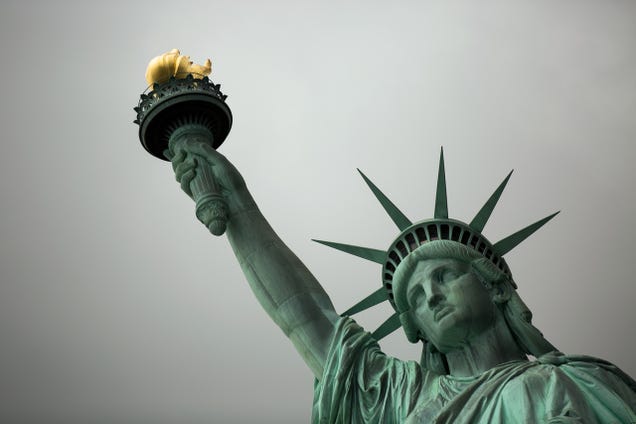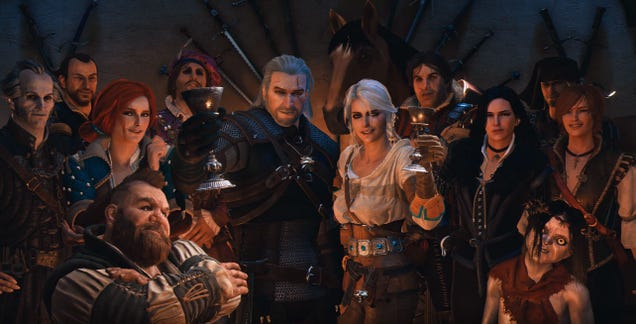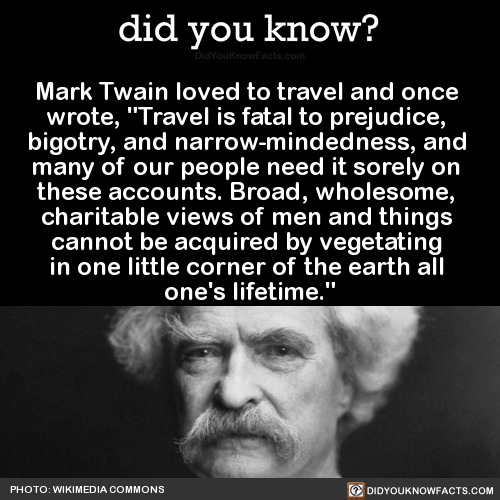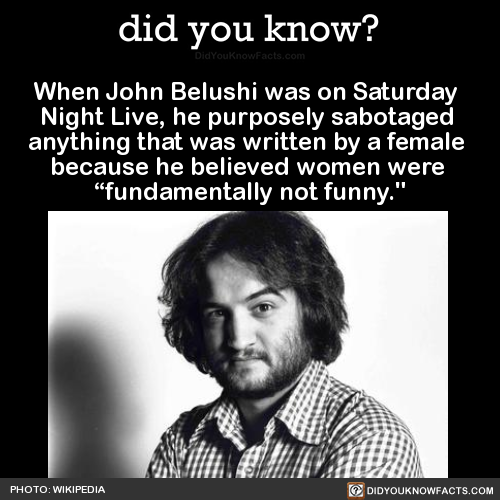
Shared posts
renee.nixon

ATTENTION: Public Warning Signs by April Soetarman Engage the Emotions of Unsuspecting Pedestrians

Designer and artist April Soetarman has been producing and anonymously hanging custom street signs around her hometown of Seattle since 2016. The practice started as a way for her to diversify her art-making, which had previously been more architecture-based, in addition to working through some feelings she was processing at the time. After her original “NOTICE: I Never Stopped Loving You. Hope You’re Well” sign became viral, she began producing other rewrites of classic street and warning signs and adding them to her website Weird Side Projects.
After several requests for her most popular sign “ATTENTION: You Are Wonderful And Deserve Every Happiness,” Soetarman decided to go public with the design and recently started a Kickstarter to fund a larger run. You can see more of her aluminum signs, and further art projects, on her website and Instagram. (via This Isn’t Happiness)









The most difficult glue up evar!!! 5 layers purpleheart, maple and padouk all .09” thick, bent into a panel along a 6” radius. There was much cursing. . . . . . #WIP #woodworking #maple #lamination #purpleheart #woodart
tragedyseries:Two days left on the winter sale! Don’t forget to...

Two days left on the winter sale! Don’t forget to enter the ‘snugglecub’ password to get twenty five percent off your whole order. My warmest regards this cold and grey season.
De-Escalate Washington Has Enough Signatures to Make the 2018 Ballot, Campaign Says

An initiative that would strengthen mental health training requirements for police officers and make it easier to charge cops who use deadly force has gathered enough signatures to appear on the next ballot, according to a spokesperson for the initiative drive.
Riall Johnson, campaign director for De-Escalate Washington, says Initiative 940 has gathered more than 281,000 signatures, passing the 259,622 required by the Secretary of State's office for ballot initiatives.
Still, Johnson says his team is aiming for 350,000 signatures by December 20 for extra padding against duplicates, illegible handwriting, and signees who aren't registered to vote in Washington State.
As Sydney Brownstone reported back in July, Initiative 940 would remove language in Washington's deadly force law making this state the most difficult to prosecute officers who use deadly force.
The initiative also mandates that law enforcement officers in Washington State undergo mental health and de-escalation training, and requires cops to provide first aid to victims after police shootings. Police responses to mental health crises came under public scrutiny after the fatal police shootings of Renee Davis and Charleena Lyles, both pregnant women. The King County deputies who shot Davis had gone to her home for a "wellness check" after her boyfriend told police she threatened to kill herself. Lyles had recently been released from jail after an incident with police that her public defender said raised mental health issues.
Thirty-two people have been fatally shot by police in Washington State this year, according to a database of fatal police shootings maintained by the Washington Post. Mental illness played a role in nine of those 32 killings, the database shows.
Geometric Birds and Other Designs Formed From Bright Folded Paper

Istanbul-based paper artist Tayfun Tinmaz left a career in modeling to begin producing paper art designs, a practice of geometric-inspired works he collects under the name Paperpan. To produce each piece he first individually folds several dozen colorful triangles. Next, he fits these discrete parts together like a puzzle, forming tropical birds such as parrots, toucans, cockatoos, and more. You can see more of his three-dimensional paper designs on Instagram, and view the Paperpan webshop on Etsy. (via Lustik)









VIDEO: King County Sheriff John Urquhart Boasts of Handcuffing Kshama Sawant, Tipping Off ICE

After nearly five years in his current position, King County Sheriff John Urquhart is running for re-election. To The Stranger, Urquhart has presented himself as a progressive reformer, someone who's interested in breaking down the "blue wall" of silence surrounding police misconduct. But last week, The Stranger received two videos of Sheriff Urquhart recently making the case for his reelection to Republicans, in which he used language and took positions we hadn't seen from this sheriff before.
On August 24 at the 45th District GOP's annual barbecue, Sheriff Urquhart introduced himself by telling attendees that he was the only person in the room to have put handcuffs on Kshama Sawant. (King County Sheriff's deputies arrested then-candidate Sawant as she protested an eviction of a South Park resident in 2013.)
At the August 24 gathering, Urquhart also said that he would call immigration officials to pick up an accused rapist, and that "if OJ Simpson was here illegally, I'd call ICE and get him deported." When asked what his feelings were on restorative justice, an approach to crime that focuses on harm reduction and community as solutions over incarceration, Urquhart said that he's not "a big guy about having circles and passing a feather around."
On Friday, the Stranger Election Control Board interviewed both Sheriff Urquhart and his opponent, Major Mitzi Johanknecht, using several of the same questions the candidates received at the other two forums. Johanknecht's answers were largely consistent, but Urquhart's differed significantly.
In an email and call to The Stranger after this article was published, Urquhart acknowledged that he used a different approach with different audiences. "That's necessary to promote the progressive ideas that I believe in," he said by phone. If I go in there talking like some far-out liberal to the Republicans, they're going to reject me out of hand. But if I can get them to look at me like I have some reasonable ideas that they can consider, I have a much better chance at advancing the agenda that the people at The Stranger care about."
We are reposting excerpts of our interview below next to transcripts of the video of candidates at the GOP events. We are also posting at the bottom of this page Urquhart's explanation of discrepancies in his answers.
• Safe Injection Sites
At a September 12 community forum in Ballard, Urquhart was asked about his position on safe injection sites and he said he thought they were a "horrible idea" but one that would save lives.
On September 29, we asked Urquhart if he thought safe injection sites were a good idea (1:45 in the audio below). "Yes," Urquhart answered.
He continued:
Not only do I think they're a good idea in the right spot... not only do I think they're a good idea, the Seattle Times, the mayor of Seattle, the prosecutor of King County, the AMA... I mean, there's a laundry list of organizations, Seattle/King County Public Health, that think they're a good idea. And for a police officer, for a police officer to go up against all those people, all those studies, to me, just strikes at the very heart of the problem with policing, not only today, but going back a long, long time. And that attitude is, we're the cops, you're not, don't tell us how to do our job. And that is a terrible, terrible attitude. We have to listen to society. And what society, the smart society, is saying today is we need safe injection sites to keep people from dying.
• Calling immigration officials on arrestees
At the August 24 GOP barbecue, Urquhart challenged a definition of "sanctuary cities" before saying that nothing stops him or his deputies from calling immigration officials on arrestees.
Urquhart said:
My deputies, there's nothing that keeps them from calling ICE and saying "So-and-so is down the street. He's an illegal alien. He's a rapist, he's a murderer, he's a cartel member, and go pick him up." I've done that, and my deputies can do that today. I was just on Kirby's radio show here and John Carlson asked, "What about this rapist in Burien?" A very very vile rape and he was here illegally. Suppose the jail, they're going to let him out of jail. He said, do you think, sheriff, do you think the jail should call ICE and tell them that he's about to be released and could be deported. I said, "John, I will call them myself. I will call them myself for ICE to go pick them up." If OJ Simpson was here illegally I'd call ICE and get him deported.
On September 29, we asked in what circumstances Urquhart might call immigration officials on someone he arrested. "Never," Urquhart said.
When we asked Urquhart if he ever called Immigration and Customs Enforcement (ICE) on someone that his department arrested (listen to the next clip), he said that he had, as a narcotics officer "back in the day", called the Immigration and Naturalization Service (an agency that preexisted ICE).
• Calling someone an "illegal alien"
On August 24, Urquhart used an example of his deputies calling ICE and tipping them off to an "illegal alien." When we asked him on September 29 if a human being could ever be "illegal," Urquhart said, "No. A person can be undocumented, but not illegal."
He continued:
Personally I think it's morally wrong to consider somebody illegal. A human being cannot be illegal. They can break the law, they can be arrested, they can be convicted, they can be a convicted felon, or a convicted misdemeanor, but they can't be illegal. And that, you know, there's a whole lexicon we've used over the years that has dehumanized people. And illegal, since we're talking about immigration, that's one of the biggest ones. Junkie is another one. Hooker is another one. These are terms that we just don't use anymore because they're dehumanizing. And we shouldn't use them now, and we shouldn't have used them then. And boy, I better not catch any of my people using those words.
• Restorative Justice
On August 24, Urquhart responded to a question on his feelings about restorative justice, and whether he advocates for it. He said:
No. Every month I run down to the police academy and I swear in my new recruits. Every single month. Somewhere between two and five or six. And I've got kind of a talk that I give them. And here's the talk, here's what I tell them every single time. I tell them I don't care if you daisy chain people together and take them to jail if that's where they need to go, that's what I expect you to do. The thing about being a police officer is you, you, society, gives us some very specific responsibilities and authority. We have the responsibility, the authority, to take someone's freedom away, to kick them out of their house, to take their life. And we should use that when we have to, and only when we have to. I don't believe, [unintelligible], I'm not a big guy about having circles and passing a feather around, that's just not who I am, okay?
When we asked Urquhart what he made of restorative justice on September 29, he said:
Well I'm for it, certainly. A criminal history, a criminal background can destroy your life. Luckily we've changed it so you can vote again and 'ban the box', great idea, fantastic idea, I'm glad they did that.
Steven Hsieh contributed reporting.
UPDATE: Urquhart responded to our questions shortly after this post went live. Here are his explanations for the discrepancies in his answers.
Urquhart stands by his statement to SECB that safe injection sites are “a good idea,” in contrast to Johanknecht, who opposes them. He also says he plans to speak out against an initiative proposing to prohibit safe injection sites in King County and that Patricia Sully, a public defender, approved of his comments (Sully confirmed this and said Urquhart has "consistently come to the right conclusion” on safe injection sites). He says he described them the way he did to win over conservatives and combat NIMBYism.
I know that their main concern is that a safe injection site will be established right in their neighborhood and their kids are going to have to walk past it when they go to school. If that fear persists, then those parents will never support the concept. So I explain my position as a past soldier in the War on Drugs. I tell people that I share their shock about the concept of safe injection sites because of my experience as a narcotics detective.
Urquhart said his statement about nothing keeping officers from calling ICE refers to federal law. US Code 1373 blocks local governments from prohibiting communication between police officers and ICE. He said he has ordered deputies not to arrest anyone just because they have an ICE warrant.
When I tell groups, and they're usually conservative groups, that nothing keeps a deputy from calling ICE and saying, "So-and-so is down the street," this is to drive home the fact that this option lawfully exists, which usually helps to tamp down their opposition. But what's also in that message is the vast majority of police officers never call ICE because they know that it has a detrimental impact on relations with the community we serve. It's counterproductive, and police officers know it.
Urquhart said he stands by his statement that “illegal alien” is a dehumanizing term:
The context of the conversation was that I was reiterating what an arresting officer might say or do. I do my best not to adopt the language of the opposition and understand I should have been more careful in this context.
Regarding statements in which he said he’d personally call ICE on someone, including an alleged rapist in Burien and a hypothetical undocumented OJ Simpson, Urquhart said he was speaking as if he were a deputy, not the sheriff (In the video, he quotes a radio segment in which he says, “I’d call them myself.")
Before I spoke, someone came up to me and asked me about the Burien rape. I've read about it, and discussed it with very many people. It was a vicious, vicious attack. I surmised yes, if I were still on patrol and the arresting deputy of that suspect, and I learned that he was going to be let free, then as the arresting deputy having dealt with the victim, I probably could not resist contacting ICE.
On his answer to questions about restorative justice, Urquhart said his comment at the 45th GOP barbecue referred specifically to "peace circles" and was not inconsistent with the answer he gave us. (The person who questioned him at the GOP barbecue did ask if he advocated for "restorative justice instead of putting criminals in jail.")
Stuff we got wrong in the ’90s: Ebonics
One thing that has always baffled me, as a journalist and as a person, is how America decides what to freak out about.
It’s a big country: Weird and wild and ridiculous things happen all the time. But every year we choose 10 or 15 of them, we put them on our front pages and we lose our minds debating them. Sometimes it’s a dead gorilla, sometimes it’s missing white ladies, sometimes it’s a dress code on airplanes. By the time we circle back to the facts behind them, we’re surprised to find that they no longer match the opinions we’ve formed.
The first of these flare-ups I can remember is the “Ebonics” controversy of 1996. I was 14 at the time, just starting to notice things like late-night monologues and the op-ed page of my local paper. Suddenly both of them were filled with the story of this school district that had decided to teach African-American Vernacular English—”Ebonics” is what the linguists called it; “black slang” is what the columnists called it—as a foreign language. Teachers in Oakland, heads in little boxes on CNN told me, would be teaching “we be happy” as a perfectly acceptable alternative to “we are happy.”
The Oakland School Board’s decision was almost perfectly designed to transcend its circumstances and become a metaphor for How We Race Now. Within days, editorial boards across the country denounced the decision. Within weeks it was condemned by the Clinton administration. Within months it was investigated by Congress.
As usual, the first thing to disappear underneath all the outrage was the event that precipitated it. Nearly everything we heard about the Oakland School Board’s decision in 1996 was wrong. And even worse than how we talked about it then is how we remember it now.
Here, finally, is what really happened:
US Homeland Security Will Start Collecting Social Media Info On All Immigrants Starting October 18th

The US Department of Homeland Security (DHS) is expanding the kinds of information that it collects on immigrants to include social media information and search results. The new policy, which covers immigrants who have obtained a green card and even naturalized citizens, will take effect on October 18th.
Aerial Images of Vibrant Landscapes by Photographer Niaz Uddin

The Grand Prismatic Spring at Yellowstone National Park (all images via Niaz Uddin)
Niaz Uddin is a photographer, director, and filmmaker that explores a variety of natural landscapes from high above. His color-saturated photographs explore crowded beaches and remote tide pools, capturing each of the scenic environments from a bird’s eye view. One of my favorite images is the picture above, which provides a rare perspective of the Grand Prismatic Spring in Yellowstone National Park. You can see even more sky-high images on his Instagram, and buy limited prints on his website.

Laguna Beach


Manhattan Beach


The Witcher Turns 10, Releases Very Nice Video

The Witcher series is 10 years old this month, and to mark the occasion CD Projekt Red released this teary lil’ clip.
Gay Men Love Me: A PSA for Straight People Who Visit Gay Bars — WATCH
YouTube comic Michael Henry is back with some food for thought on etiquette straight people should observe when paying a visit to their local gay bar.
The post Gay Men Love Me: A PSA for Straight People Who Visit Gay Bars — WATCH appeared first on Towleroad.
Keep the Change

At the height of its power, the Roman Empire stretched from Libya to London, Istanbul to Iberia.

It was remarkably modern. The Romans collected taxes, they built roads, they negotiated trade deals with the (literal) Slavic hordes.

The empire’s most critical nervous system was its infrastructure. Mail and goods and information traveled from one end to the other in just two weeks. A network of B&Bs let travelers change horses, rest for the night, eat a hot meal.

It was a legitimate miracle, a feat of bureaucratic innovation that wouldn’t be matched for a millennium.

Until, of course, it fell apart.

The vandals invaded, the military lost, the bureaucracy shattered. Cue dark ages.

We think of the fall of Rome as an event, a discrete, seeable Thing that happened on a Thursday a thousand years ago.

In reality, though, it was more like a big long exhale. Yes the barbarians invaded and yes it sucked. But the empire had been faltering for decades beforehand and coasted on its built-up power for decades afterward.

What happened, slowly and steadily, was that the central authorities lost their ability to project power. Their tentacles of influence—infrastructure, taxes, law enforcement—retracted over decades, leaving power vacuums that filled up with made-up royalty and ad-hoc warlords.

Province after province, as the shadow of the central authorities lightened, local aristocrats and landowners rose up to replace it. Borders appeared. Mail took longer to deliver. Regions cut themselves off. Trade routes withered. Cities languished.

It some places it took decades. In others, centuries. To the people living through it, the fall of Rome did not particularly feel like one. It was simply an escalating series of scandals, little mistakes and decisions that rendered centralized power weak, then invisible, then history.

These are random pictures of Zimbabwe I took over the years.

It was once the great hope of Africa, a bright spot of prosperity and peace in the (literal) middle of a troubled continent.

The best universities, the most educated workers, the best infrastructure.

And then Robert Mugabe, piece by piece, took it apart.

He confiscated land from industrial farms and gave them to random war generals. He hyper-inflated the economy. He killed rivals and chased off investors and taught his own people to fear him.

None of this was unexpected or surprising. We did not learn anything new about this man each time he stole an election, disappeared a political rival, inflicted his worst instincts upon his people.

But each of them mattered.

There is a human tendency to think that the most important events, the most seismic changes, are differences in kind. Narratives new and unprecedented, developments that erase the past. An earthquake. A fire.

They make the best stories. Transformations, turns, reversals. Peace to war, prosperity to squalor, progress to backsliding.

But history does not happen in category changes, lines being drawn and then crossed. History is shifts in emphasis, swapped priorities, the future echoing the past a little louder or slight softer.

Events from which we learn nothing. Decisions about which we are not surprised, only saddened.

There’s this thought experiment for human evolution.

Put yourself on an index card. Then make one for your mother, then her mother, then her mother, and so on.

Index cards stretching back in time forever. A hundred thousand generations ago you were an ape. A million ago, you were a rat. Ten million ago you were a fish.

These changes are profound. But pull any two cards out of the stack and you will see no difference between them.

You’re not so different from your parents and they’re not different from theirs. The ape looks just like his parents, and so does the fish.

Maybe we’re conditioned to look for differences in kind because we seek stories. Twists, turnarounds, surprises. Differences in degree are less noticeable, harder to find, less tellable in the moment.

Britain was one of the first outposts of the Roman Empire to go. The farthest corner, a mossy island, a tiny garrison of troops, warring tribes already competing to usurp them.

For 80 years, Roman currency inflated and dwindled. Without money, the elites couldn’t buy leather or food or pottery. Without income, the peasants making them had no choice but to move back to the countryside.

As the cities emptied, as tradesmen became backyard farmers, they stole stones from the roman architecture they left behind. Brick by brick, they carried them home along the roads, stacked them in squares around their families. Then they waited for the world to reach them again.
David Mixner: Don’t Move Confederate Monuments — Take Them Down!
Recently at a dinner party I attended there was a civilized debate about the famous monuments around the country glorifying the Confederacy and its leaders. A few people expressed concerned that moving monuments is rewriting history and a case of political correctness gone wild.
 The truth is that we are rewriting history and replacing it with an honest look at the trials and tribulations of our young republic. Because of segregation and racism over the years, American history has literally been ‘white-washed’. America is a great and good nation but a nation that must honestly confront its past in order to build for the future.
The truth is that we are rewriting history and replacing it with an honest look at the trials and tribulations of our young republic. Because of segregation and racism over the years, American history has literally been ‘white-washed’. America is a great and good nation but a nation that must honestly confront its past in order to build for the future.
Monuments occupy places of honor in our local communities. They are placed in our town squares to inspire future generations and to share stories of individual excellence and courage.
The President claims he likes facts. Mr. President, the facts are clear. Military leaders and political leaders who supported the Confederacy were people who committed treason against the United States of America. They committed that treachery to continue the deadly and torturous practice of slavery. Their sedition led to a civil war in America that killed over 600,000 of our citizens. In today’s numbers that would be close to six million killed.
Monuments extolling the virtues of General Lee, Stonewall Jackson and others have no place in our town squares. These so-called heroes betrayed our country to defend a policy of human bondage that resulted in the death of over two million in the North Atlantic slave trade. You can’t sanitize their subversion and the reasons for it.
Can you imagine walking in Berlin and seeing a statue of Hitler in the center of the city since he was a key part of German history?
As a member of the LGBTQ community I don’t want to be confronted by a monument of Senator Jessie Helms of North Carolina. The former senator was one of the main architects of the policy that led to the deaths of thousands upon thousands of gay men from AIDS.
American history is not easy for any of us. It is filled with pain, failed policies, genocide and outrages. Ignoring our more painful moments will ensure we will only repeat them. Our difficult history must be shared so that we can indeed move forward as a nation to that more perfect union as a united people.
The monuments should be built for Americans like Elizabeth Cady Stanton, Harriet Beecher Stowe, Congressman John Lewis, Cesar Chavez, Harvey Milk, Edie Windsor and so many others who have inspired this nation with their courage and principles.
As Maya Angelou wrote: “History, despite its wrenching pain, cannot be unlived, but if we face it with courage, need not be lived again.”
The post David Mixner: Don’t Move Confederate Monuments — Take Them Down! appeared first on Towleroad.
Is Facebook Silencing Black Activists With Racist Bots?

On Thursday morning, Facebook removed a post that Seattle-based black activist and artist Natasha Marin had composed over a year ago. Then they banned her from the site for three days.
According to Marin, the social media platform had thrown her in "Facebook jail" for violating the network's Community Standards by posting a screenshot of a racist message she had received on her Reparations project page. This project, which is now a well-attended Facebook group where people of color can make requests for willing white people to fulfill, draws so many racist comments from other Facebook users that Marin has constructed a "Shrine Of Asshats" page to display them. Needless to say, black and brown people reposting hate speech as a way of calling attention to the amount of vitriolic slime they have to swim through on a regular basis isn't the same as a white person using hate speech to hurt people, but FB banned her anyway.
The ban is a particularly harsh punishment for Marin, who uses Facebook to promote the classes she teaches to pay the bills. She also runs her Reparations project on the platform and manages the Seattle People of Color Salon, a social network for Seattle POC.
After I e-mailed Facebook to ask why Marin had been banned, the company reviewed their decision, recognized that they made a "mistake" in taking down Marin's post, rescinded the ban, and apologized.
However, their apology included a warning. While Facebook did admit to making a mistake in removing the post they removed, some of racist comments Marin screen-grabbed and reposted contained the e-mails of those racist commenters. Since sharing others' personal information without their consent violates FB's Community Standards, Marin was also warned not to post personal information—which she'd done on a few other occasions—or else she'd be temporarily banned again.

Facebook also recently temporarily banned and then later apologized to Ijeoma Oluo for posting screenshots of racist comments people were hurling at her. According to Devin Coldeway over at Tech Crunch, there have been several other similar instances:
We talked with another activist recently, Leslie Mac, who like Oluo spoke out on racism using the platform, and like Oluo was suspended from it. It happened to Shaun King, too, after he posted a racist email he received.
A spokesperson at Facebook recognizes this pattern, but told me that they're not intentionally targeting black activists.
Though publishing hate speech violates FB's Community Standards, they do recognize that people such as Marin use that speech in an empowering way to draw attention to racism. Facebook allows those uses, but they also make mistakes in that arena.
To help me understand how those mistakes are made, the spokesperson walked me through the banning process.
What happens is this: Someone on Facebook posts a bit of hate speech because they're fucking terrible or someone reposts that hate speech to show how terrible that fucking person is. Then some other user reports that post (or in some cases that whole page) to Facebook.
Once the offending speech is reported, a member of Facebook's content review team takes a look. There are currently 4,500 people employed on this team, but the spokesperson told me the company plans to hire 3,000 more people soon. This global team works 24/7 in 40 different languages to sift through millions of reports each week. They're trained up on implicit bias when they're brought on and retrained throughout their tenure. When someone makes a mistake, as they did in Marin's case, Facebook explains to that specific reviewer where they made the mistake and trains them in that area again. Some mistakes are incorporated into training decks to be used for future employees. The spokesperson also told me Facebook audits implicit bias trainings to make sure the trainers aren't making mistakes themselves—language and the way people use it changes all the time, and they strive to keep up with the trends.
This team of 4,500 content reviews include among their ranks, according to the spokesperson, people who are considered experts in hate speech, child safety, and terrorism. When a user flags a post or a page, it goes to the person or group most familiar with the language and culture of the offending item.
Reviewers make mistakes when they don't fully understand the context of the post, which can be difficult if the user doesn't include a caption specifying why she's sharing the post, or if the reviewers can't properly stalk the user. Depending on the user's privacy settings, reviewers might not be able to tell if the user is a black or brown person who's been the victim of racism or a white person who's being a fucking stupid idiot racist baby.
A few nuances here: Reviewers prioritize posts that have been reported tons of times, and they tend to put posts the team has already ignored tons of times on the back burner.
If reviewers determine that a post violates the Community Standards, then they give the user a warning, remove the post, or ban the user for a certain number of days depending on the severity of the situation. Users who have been warned a lot are more likely to get banned. If someone’s profile or page has been removed, they can appeal the decision.
In Marin's case, the reviewer messed up when they removed the post that they removed. But when they re-reviewed other posts, they determined that Marin had shared e-mails of people who wrote racist comments and so they temporarily disabled her account. Marin told me she did not have the option to appeal that decision.
The spokesperson told me that Facebook doesn't like when users dox each other because it makes everyone more vulnerable to abuse. If Marin had wanted to repost a racist comment and blur out that commenter's e-mail, that would have been fine.
According to the spokesperson, Facebook knows the apparent pattern of disabling the accounts of black activists doesn't look good, but insists their actions are not intentional. Moreover, the content review team feels terrible when those mistakes happen.
In addition to hiring more reviewers, Facebook is looking at how their policies can address this problem better. The spokesperson says they're having more conversations than ever with marginalized communities who feel like they're not being treated fairly, but admits that they're just not there yet in terms of addressing their issues.
So, no. According to a Facebook spokesperson, there are no racist bots banning black activists because of some robotic misunderstanding of cultural context. There are just human beings on a content review team deciding that some posts by black activists violate their rules on hate speech, and then being terribly wrong about that.
But when they're not terribly wrong, they really let those racists have it by banning them for three whole days. That'll teach 'em.
Mark Twain loved to travel and once wrote, “Travel is...

Mark Twain loved to travel and once wrote, “Travel is fatal to prejudice, bigotry, and narrow-mindedness, and many of our people need it sorely on these accounts. Broad, wholesome, charitable views of men and things cannot be acquired by vegetating in one little corner of the earth all one’s lifetime.” Source Source 2
When You Visit Sacred Spaces, Think Before You Selfie

The rise of the selfie has driven a rift into society, bringing up a surprising number of issues over gender, class, age, religion, and race. Wired’s Jason Parham explores some of these in “When the Selfie Turns Sacrilegious,” an essay on taking selfies in sacred or serious places like mosques and art installations.
What Makes an Artificial Intelligence Racist and Sexist

Artificial intelligence is infiltrating our daily lives, with applications that curate your phone pics, manage your email, and translate text from any language into another. Google, Facebook, Apple, and Microsoft are all heavily researching how to integrate AI into their major services. Soon you’ll likely interact…
Forbidden Fitness with Musclemancer Kraig Diabolucci VHS cover

Forbidden Fitness with Musclemancer Kraig Diabolucci VHS cover









 Sneaky, creative, and adorable, there is no way to hold these toddlers back.
Sneaky, creative, and adorable, there is no way to hold these toddlers back.
